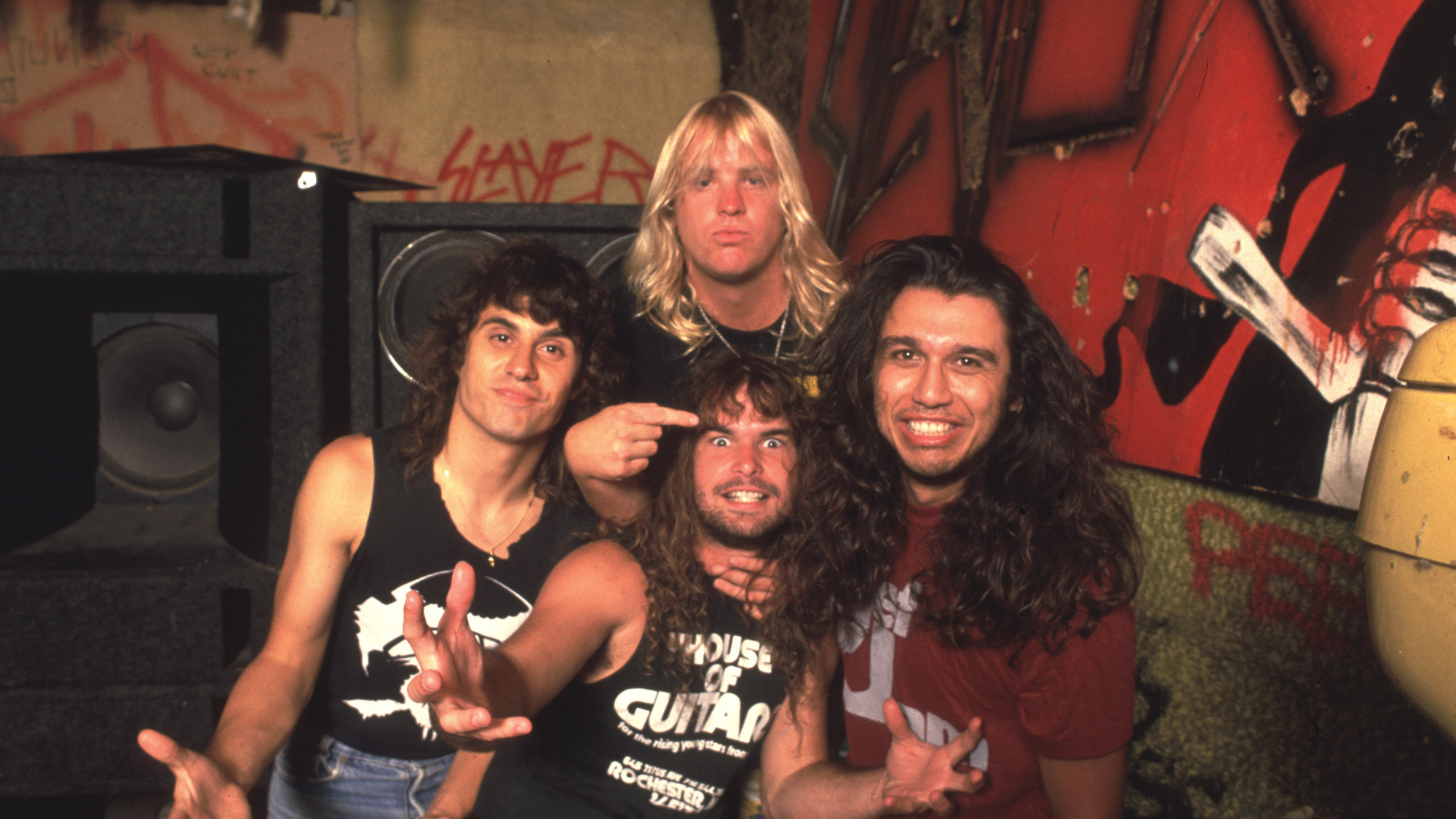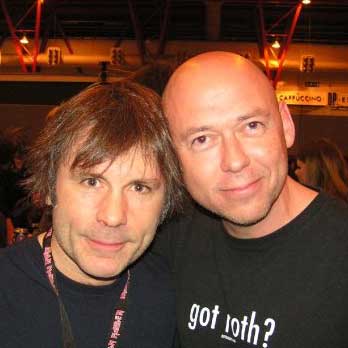“If it sounds like I’m standing over a body that’s just been stabbed to death, then it’s perfect.” The brutal heavy metal masterpiece that had producer Rick Rubin yelling: “More Satan!”
How the evil of Slayer flowed “after a few martinis”…

In 1985, Slayer were hailed as “the most threatening, subversive band on the planet” by British writer Geoff Barton. But it was 1986 that the band delivered their masterpiece - the definitive thrash metal album, Reign In Blood.
Producer Rick Rubin had signed Slayer to the Def Jam label after witnessing their performance at a New Music Seminar industry forum event in New York City in 1985.
“I’d already gone through my fast phase,” Rubin said in an interview with Sounds. “Hardcore punk music was all I listened to for three years earlier. But one day the speed thrill just ended for me. I started listening to Black Sabbath pitched all the way down on my stereo. Fast music didn’t interest me at all. Then Slayer made it exciting again.”
At that New York show, Slayer’s support act was Megadeth, another leading thrash metal band, led by ex-Metallica guitarist Dave Mustaine.
Rubin said of Megadeth’s set: “The audience was spitting on them. I thought they were terrible.” Slayer, however, blew him away. “What impressed me was they had 2000 kids completely in love with them and they didn’t care. They weren’t posing.”
During the recording of Reign In Blood at Hit City West studios in California, Rubin’s masterstroke was to dispense with the guitar reverb effects that had been deployed on Slayer’s two previous albums, Show No Mercy (1983) and Hell Awaits (1985).
As Slayer guitarist Jeff Hanneman recalled: “Hell Awaits had a kind of Wall Of Sound, Phil Spector production. Rubin said, ‘You don’t need that. Without the reverb it’ll be more in your face.’”
Want all the hottest music and gear news, reviews, deals, features and more, direct to your inbox? Sign up here.
Reign In Blood was recorded in just three weeks, and as fellow guitarist Kerry King said: “As we were making that record, the aggression in our music was just escalating. The songs got faster.”
So much faster, in fact, that the whole album clocked in at just 29 minutes. The fastest track is Necrophobic, measured by drummer Dave Lombardo at 210 beats per minute. “When the songs were written they were slower,” Lombardo said. “But as they progressed they got faster and faster. Man, we were tight! Unbelievably fast and tight!”
Rubin’s only concern was that Slayer had toned down the Satanic imagery prevalent on Show No Mercy and Hell Awaits. At one point, Rubin demanded: “More Satan!”
“They were getting away from the roots,” Rubin laughed. “I love it when bands explore a new direction, but I also like to ensure that they deliver a certain amount of what a fan expects.”
Reign In Blood still stands as one of the heaviest albums ever made.
“We liked our music to sound really dark and ugly and eerie,” said bassist/vocalist Tom Araya.
Jeff Hanneman put it more chillingly. “We’re not schooled musicians,” he said, “but we knew what sounded dark. All you do is go a step up or down till you get it right, and it sounds huge. Once I started playing guitar I recognised that when I hit certain notes I’d get a certain feeling. This is the way I played it in my head: if it sounds like I’m standing over a body that’s just been stabbed to death, then it’s perfect.”
Oddly, Hanneman also revealed that the brutality in Slayer’s music came from a happy place. He wrote much of Reign In Blood while living with his girlfriend at her parents’ home, and as he explained: “When my girlfriend’s dad came home at night we’d have three or four martinis, we’d play video games, and then I’d write in her bedroom. It’s weird… when I’m angry it doesn’t flow as easy, but when I’m happy the evil comes out!”

Paul Elliott has worked for leading music titles since 1985, including Sounds, Kerrang!, MOJO and Q. He is the author of several books including the first biography of Guns N’ Roses and the autobiography of bodyguard-to-the-stars Danny Francis. He has written liner notes for classic album reissues by artists such as Def Leppard, Thin Lizzy and Kiss. He lives in Bath - of which David Coverdale recently said: “How very Roman of you!”
